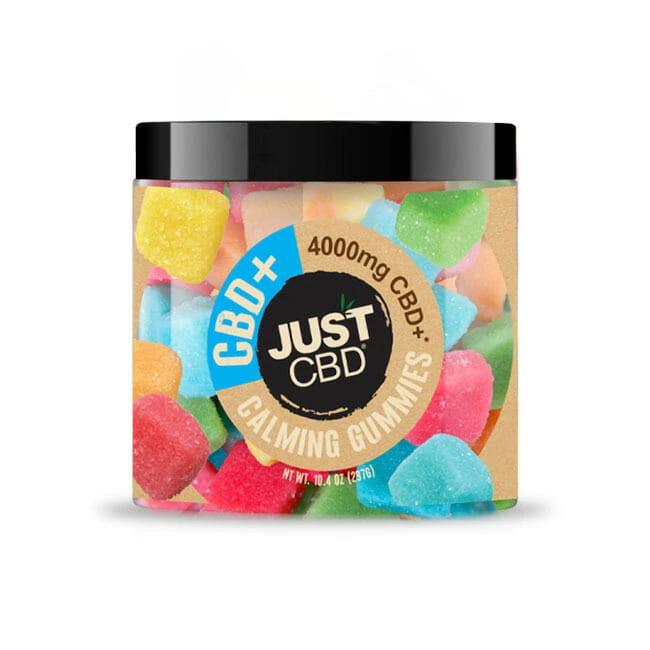CBD and its Interaction with the Body
CBD, short for cannabidiol, is a naturally occurring compound found in the cannabis plant. Unlike its cousin THC, CBD does not produce psychoactive effects. Instead, it interacts with the body’s endocannabinoid system (ECS), a complex network of receptors involved in regulating various physiological processes, including pain perception and inflammation.
ECS System
The ECS plays a crucial role in maintaining homeostasis within the body. It consists of two main types of receptors: CB1 and CB2. CB1 receptors are primarily found in the brain and central nervous system, while CB2 receptors are concentrated in the immune system and peripheral tissues. CBD indirectly influences these receptors by modulating the activity of endocannabinoids, which are naturally produced signaling molecules that bind to ECS receptors.
When CBD interacts with the ECS, it can help alleviate pain and inflammation. By influencing CB1 receptors, CBD may reduce the transmission of pain signals to the brain. Additionally, its interaction with CB2 receptors can help regulate the immune response, thereby reducing inflammation throughout the body.
Pain Receptors
CBD’s potential for pain relief stems from its impact on pain receptors. These receptors are specialized nerve cells that detect and transmit pain signals to the brain. CBD is believed to modulate these receptors, potentially reducing their sensitivity and therefore decreasing pain perception.
Inflammation is a natural bodily response to injury or irritation, but chronic inflammation can contribute to pain and various health issues. CBD’s interaction with CB2 receptors, which are involved in regulating the immune system, may help reduce inflammation by modulating the inflammatory response.
Inflammation Response
CBD interacts with the body by influencing its endocannabinoid system (ECS). The ECS consists of receptors, primarily CB1 and CB2, that play a crucial role in regulating various bodily functions, including pain perception and inflammation.
CBD indirectly affects these receptors by modulating the activity of endocannabinoids, natural signaling molecules produced by the body. By interacting with CB1 receptors, CBD may reduce the transmission of pain signals to the brain, alleviating pain. Additionally, its interaction with CB2 receptors, concentrated in the immune system, can help regulate the immune response and potentially reduce inflammation.
CBD’s ability to modulate pain receptors contributes to its potential pain-relieving effects. These specialized nerve cells detect and transmit pain signals to the brain. By influencing their sensitivity, CBD may decrease pain perception.
Chronic inflammation is linked to various health problems and can contribute to pain. CBD’s interaction with CB2 receptors may help reduce inflammation by modulating the body’s inflammatory response.
Potential Benefits of CBD Gummies for Pain Relief
For those seeking natural pain relief options, cannabidiol (CBD) gummies have emerged as a popular choice. These chewy treats offer a convenient and palatable way to consume CBD, a compound known for its potential to alleviate pain and inflammation.
Musculoskeletal Pain
CBD gummies contain CBD extracted from the hemp plant. They can be an effective option for managing pain, particularly musculoskeletal pain, due to CBD’s interaction with the body’s endocannabinoid system (ECS).
The ECS plays a crucial role in regulating various bodily functions, including pain perception and inflammation. By influencing CB1 and CB2 receptors within the ECS, CBD may reduce pain signals transmitted to the brain and modulate the immune response, thereby reducing inflammation.
For individuals experiencing musculoskeletal pain, such as arthritis or muscle soreness, CBD gummies might provide relief by targeting these areas of discomfort. The localized application of topical CBD products can also be beneficial for specific joint or muscle pain.
While research on CBD’s effectiveness for pain management is ongoing, numerous anecdotal reports and preliminary studies suggest its potential benefits. However, it’s essential to consult with a healthcare professional before incorporating CBD gummies into your pain management plan, especially if you have underlying health conditions or are taking medications.
Neurological Pain
CBD gummies offer a convenient and palatable way to consume cannabidiol, a compound known for its potential pain-relieving properties.
- CBD interacts with the body’s endocannabinoid system (ECS), which plays a crucial role in regulating pain perception and inflammation.
- By influencing CB1 receptors in the brain, CBD may reduce the transmission of pain signals.
- CBD’s interaction with CB2 receptors, concentrated in the immune system, can help regulate the inflammatory response.
For those seeking natural pain relief options, CBD gummies might be a valuable consideration. It’s important to consult with a healthcare professional before using CBD products, especially if you have any underlying health conditions or are taking medications.
Other Types of Pain
CBD gummies offer a convenient and palatable way to consume cannabidiol (CBD), a compound known for its potential pain-relieving properties.
CBD’s potential benefits for pain relief stem from its interaction with the body’s endocannabinoid system (ECS). The ECS plays a crucial role in regulating various bodily functions, including pain perception and inflammation.
CBD may reduce pain signals transmitted to the brain by influencing CB1 receptors located in the brain. Additionally, CBD’s interaction with CB2 receptors, concentrated in the immune system, can help regulate the inflammatory response.
For individuals experiencing pain, CBD gummies might provide relief from various types of discomfort, including musculoskeletal pain associated with arthritis or muscle soreness.
While research on CBD’s effectiveness for pain management is ongoing, numerous anecdotal reports and preliminary studies suggest its potential benefits.
Studies on CBD and Pain Management
Cannabidiol (CBD), a compound derived from the cannabis plant, has gained popularity as a natural remedy for pain and inflammation. Unlike THC, CBD does not produce psychoactive effects but interacts with the body’s endocannabinoid system (ECS). The ECS plays a crucial role in regulating various bodily functions, including pain perception and inflammation.
Scientific Evidence
CBD gummies have emerged as a popular choice for those seeking natural pain relief options. These chewy treats offer a convenient and palatable way to consume CBD, which has shown promise in managing pain and inflammation.
CBD’s potential for pain relief stems from its interaction with the body’s endocannabinoid system (ECS). The ECS plays a crucial role in regulating various bodily functions, including pain perception and inflammation.
CBD works by influencing CB1 receptors located in the brain, which can reduce the transmission of pain signals. Additionally, CBD interacts with CB2 receptors found primarily in the immune system, helping to regulate the inflammatory response.
While research on CBD’s effectiveness for pain management is ongoing, numerous anecdotal reports and preliminary studies suggest its potential benefits.
Dosage and Effectiveness
CBD, short for cannabidiol, is a naturally occurring compound found in the cannabis plant. Unlike its cousin THC, CBD does not produce psychoactive effects. Instead, it interacts with the body’s endocannabinoid system (ECS), a complex network of receptors involved in regulating various physiological processes, including pain perception and inflammation.
The ECS plays a crucial role in maintaining homeostasis within the body. It consists of two main types of receptors: CB1 and CB2. CB1 receptors are primarily found in the brain and central nervous system, while CB2 receptors are concentrated in the immune system and peripheral tissues. CBD indirectly influences these receptors by modulating the activity of endocannabinoids, which are naturally produced signaling molecules that bind to ECS receptors.
When CBD interacts with the ECS, it can help alleviate pain and inflammation. By influencing CB1 receptors, CBD may reduce the transmission of pain signals to the brain. Additionally, its interaction with CB2 receptors can help regulate the immune response, thereby reducing inflammation throughout the body.
CBD’s potential for pain relief stems from its impact on pain receptors. These receptors are specialized nerve cells that detect and transmit pain signals to the brain. CBD is believed to modulate these receptors, potentially reducing their sensitivity and therefore decreasing pain perception.
Inflammation is a natural bodily response to injury or irritation, but chronic inflammation can contribute to pain and various health issues. CBD’s interaction with CB2 receptors, which are involved in regulating the immune system, may help reduce inflammation by modulating the inflammatory response.

CBD interacts with the body by influencing its endocannabinoid system (ECS). The ECS consists of receptors, primarily CB1 and CB2, that play a crucial role in regulating various bodily functions, including pain perception and inflammation.
CBD indirectly affects these receptors by modulating the activity of endocannabinoids, natural signaling molecules produced by the body. By interacting with CB1 receptors, CBD may reduce the transmission of pain signals to the brain, alleviating pain. Additionally, its interaction with CB2 receptors, concentrated in the immune system, can help regulate the immune response and potentially reduce inflammation.
CBD’s ability to modulate pain receptors contributes to its potential pain-relieving effects. These specialized nerve cells detect and transmit pain signals to the brain. By influencing their sensitivity, CBD may decrease pain perception.
Chronic inflammation is linked to various health problems and can contribute to pain. CBD’s interaction with CB2 receptors may help reduce inflammation by modulating the body’s inflammatory response.

For those seeking natural pain relief options, cannabidiol (CBD) gummies have emerged as a popular choice. These chewy treats offer a convenient and palatable way to consume CBD, a compound known for its potential to alleviate pain and inflammation.
CBD gummies contain CBD extracted from the hemp plant. They can be an effective option for managing pain, particularly musculoskeletal pain, due to CBD’s interaction with the body’s endocannabinoid system (ECS).
The ECS plays a crucial role in regulating various bodily functions, including pain perception and inflammation. By influencing CB1 and CB2 receptors within the ECS, CBD may reduce pain signals transmitted to the brain and modulate the immune response, thereby reducing inflammation.
For individuals experiencing musculoskeletal pain, such as arthritis or muscle soreness, CBD gummies might provide relief by targeting these areas of discomfort. The localized application of topical CBD products can also be beneficial for specific joint or muscle pain.
While research on CBD’s effectiveness for pain management is ongoing, numerous anecdotal reports and preliminary studies suggest its potential benefits. However, it’s essential to consult with a healthcare professional before incorporating CBD gummies into your pain management plan, especially if you have underlying health conditions or are taking medications.
CBD gummies offer a convenient and palatable way to consume cannabidiol (CBD), a compound known for its potential pain-relieving properties.
- CBD interacts with the body’s endocannabinoid system (ECS), which plays a crucial role in regulating pain perception and inflammation.
- By influencing CB1 receptors in the brain, CBD may reduce the transmission of pain signals.
- CBD’s interaction with CB2 receptors, concentrated in the immune system, can help regulate the inflammatory response.
For those seeking natural pain relief options, CBD gummies might be a valuable consideration. It’s important to consult with a healthcare professional before using CBD products, especially if you have any underlying health conditions or are taking medications.
CBD gummies offer a convenient and palatable way to consume cannabidiol (CBD), a compound known for its potential pain-relieving properties.
CBD’s potential benefits for pain relief stem from its interaction with the body’s endocannabinoid system (ECS). The ECS plays a crucial role in regulating various bodily functions, including pain perception and inflammation.
CBD may reduce pain signals transmitted to the brain by influencing CB1 receptors located in the brain. Additionally, CBD interacts with CB2 receptors found primarily in the immune system, helping to regulate the inflammatory response.
For individuals experiencing pain, CBD gummies might provide relief from various types of discomfort, including musculoskeletal pain associated with arthritis or muscle soreness.
While research on CBD’s effectiveness for pain management is ongoing, numerous anecdotal reports and preliminary studies suggest its potential benefits.
Cannabidiol (CBD), a compound derived from the cannabis plant, has gained popularity as a natural remedy for pain and inflammation. Unlike THC, CBD does not produce psychoactive effects but interacts with the body’s endocannabinoid system (ECS). The ECS plays a crucial role in regulating various bodily functions, including pain perception and inflammation.
CBD gummies have emerged as a popular choice for those seeking natural pain relief options. These chewy treats offer a convenient and palatable way to consume CBD, which has shown promise in managing pain and inflammation.
CBD’s potential for pain relief stems from its interaction with the body’s endocannabinoid system (ECS). The ECS plays a crucial role in regulating various bodily functions, including pain perception and inflammation.
CBD works by influencing CB1 receptors located in the brain, which can reduce the transmission of pain signals. Additionally, CBD interacts with CB2 receptors found primarily in the immune system, helping to regulate the inflammatory response.
Considerations When Using CBD Gummies for Pain
CBD gummies are becoming increasingly popular as a natural remedy for pain and inflammation. These tasty treats offer a convenient way to consume cannabidiol (CBD), a compound known for its potential therapeutic benefits. While research is ongoing, many people report finding relief from various types of pain using CBD gummies.
Quality and Sourcing of CBD
When considering CBD gummies for pain relief, the quality and sourcing of CBD are paramount. Look for products that are derived from organically grown hemp plants, free from pesticides and herbicides.
Reputable brands will provide third-party lab testing results, which verify the potency and purity of the CBD extract. These reports should show the absence of contaminants like heavy metals or residual solvents.
Transparency in sourcing is crucial. Choose brands that clearly state where their hemp is grown and processed. Opt for full-spectrum CBD extracts, which contain a wider range of cannabinoids and beneficial compounds found naturally in the hemp plant.
Potential Side Effects
Considerations when using CBD gummies for pain include understanding potential side effects. While generally well-tolerated, CBD can cause reactions in some individuals.
Potential side effects may include:
* **Dry mouth:** CBD can reduce saliva production. Staying hydrated is important.
* **Drowsiness:** Some people experience fatigue or sleepiness after consuming CBD. It’s best to avoid operating machinery or driving if you feel drowsy.
* **Diarrhea:** This can occur, particularly with high doses of CBD. Start with a low dose and gradually increase as needed.
* **Changes in appetite:** Some individuals may experience increased or decreased appetite.
* **Interactions with medications:** CBD can interact with certain medications, such as blood thinners and antidepressants. Consult your doctor before using CBD if you take any medications.
It’s crucial to consult with a healthcare professional before using CBD gummies, especially if you have underlying health conditions or are taking medications. They can provide personalized advice based on your individual needs and medical history.
Interactions with Medications
When considering CBD gummies for pain relief, it’s essential to be aware of potential interactions with medications. CBD can interact with a variety of drugs, including:
- Blood thinners: CBD may increase the risk of bleeding when taken with blood thinners like warfarin or aspirin.
- Antidepressants: CBD may enhance the effects of antidepressants, leading to increased side effects or serotonin syndrome.
- Anticonvulsants: CBD can potentially interact with anticonvulsant medications, affecting their effectiveness.
- Statins: CBD may interfere with the metabolism of statins, increasing the risk of muscle pain and damage.
It is crucial to consult with a healthcare professional before using CBD gummies if you are taking any medications. They can assess potential interactions and advise on appropriate dosages or alternative pain management strategies.
Legal Status and Regulations
Legal status and regulations surrounding CBD vary significantly from place to place. Some countries have fully legalized CBD, while others have strict restrictions or outright bans. In the United States, the 2018 Farm Bill legalized hemp-derived CBD products with less than 0.3% THC at the federal level. However, individual states may have their own regulations regarding CBD sales and usage.
It’s essential to familiarize yourself with the specific laws and guidelines in your jurisdiction before purchasing or using CBD products. This includes understanding any age restrictions, permitted forms of CBD (e.g., edibles, topicals), and allowable potency levels.
CBD Legality
CBD legality is complex and varies significantly depending on location.
At the federal level in the United States, hemp-derived CBD with less than 0.3% THC is legal thanks to the 2018 Farm Bill. However, individual states may have their own regulations that are more restrictive. Some states have legalized recreational or medical marijuana, which often includes broader allowances for CBD products. Others might only permit specific forms of CBD (e.g., topicals) or have limitations on potency.
International laws regarding CBD are even more diverse, with some countries fully legalizing it, others prohibiting it, and many falling somewhere in between.
Before purchasing or using CBD products, it’s crucial to research the specific laws and regulations in your area to ensure compliance.
Regulation of CBD Products
The legal status and regulations surrounding CBD vary widely depending on location. While hemp-derived CBD with less than 0.3% THC is legal at the federal level in the United States thanks to the 2018 Farm Bill, individual states may have their own specific laws and restrictions.
Some states have legalized recreational or medical marijuana, which often includes broader allowances for CBD products. Others may only permit certain forms of CBD (e.g., topicals) or have limitations on potency levels.
Internationally, the legal landscape is even more complex with varying degrees of legalization, prohibition, and regulations across different countries.
It’s essential to research the specific laws and guidelines in your jurisdiction before purchasing or using CBD products to ensure compliance.
Order CBD Gummies from Just CBD for your wellness routine
Explore cbd oil infused gummies by JustCBD
Super Sleep Yoga
The Emotions
- Understanding Ghosting And Its Emotional Impact In Modern Dating - November 14, 2025
- Why Does My Lip Filler Go Away So Fast - November 14, 2025
- What Is The Difference Between Bum Filler Injections And PLLA Fillers? - November 11, 2025
